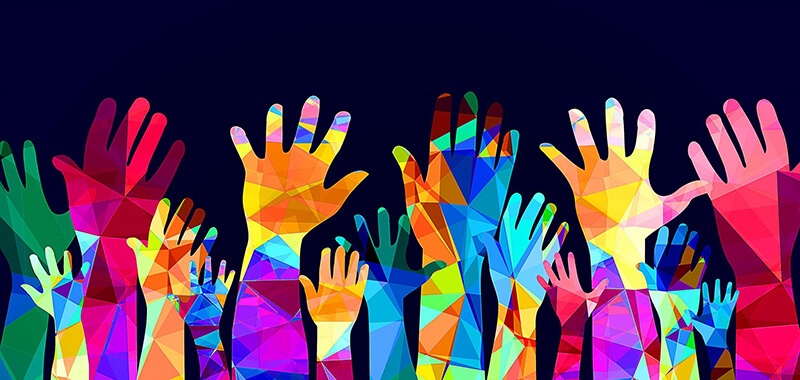How to Unlock Generation Z's Potential to Change the World

Even if you’re unfamiliar with the term “Generation Z,” you’re probably highly familiar with its ambitious, screen-obsessed members, who largely haven’t yet entered their twenties and are already making history.
Born in the mid-1990s to 2000’s bracket, Generation Z, also known as “Gen Z,” “Centennials,” and “iGen,” is rapidly taking the place millennials held for marketers, and proving even more elusive. While some researchers predict these youths to merely become an extension of everything Generation Y was, many others claim the collective members of Gen Z are distinct from their predecessors in profound ways.
For one, they are the most technologically savvy generation to walk this planet, and consequently extremely aware of the world around them as it can be reached through the Internet. With more instant access to information than any generation before them, Gen Z truly holds the power to change their world, if only their attention can be held for longer than eight seconds.
So the question of the century is: how do you catch the attention of a bunch of screen-happy, hyper-distracted youths and inspire them to use their powers for good?
Hint: it’s gonna take more than establishing a strong internet presence, but you will definitely need that as well.
Your internet presence: choose your words and pictures carefully.
For starters, contrary to the reports of those who claim Gen Z members have an eight-second attention span, the struggle for this generation isn’t truly a matter of shrinking attention spans, but of an expanding ocean of choices. Thanks to the Internet, these youths are constantly flooded with information and compelling invitations to delve more deeply into myriad rabbit holes that, more often than not, must be turned down to focus on their relatively infinitesimal pool of prioritized content and activities. Fast Company blogger Jeremy Finch refers to the Centennial’s learned ability to rapidly sift through the endless stream of content as their “eight-second filter.”
So that teenager in line at Walmart with his eyes glued to his phone might not be as distracted as you think...just very selective about where he places his profoundly felt, limited focus.
If you want to successfully communicate with Generation Z, the key is to prove, in the midst of all those other roaring, vying voices, why your message is the one worth prioritizing--and including pictures won’t hurt.
The Something-More: give Generation Z reason to hope.
All of this knowledge makes iGen one part wild dreamers and two parts cynics.
On the one hand, numerous studies predict that a huge wave of entrepreneurial spirit is heading our way, but on the other, suicide rates are apparently higher than they have been since the eighties.
As much as this generation wants to change the world, and even though it possesses many of the tools needed to be able to do so, extreme awareness of the world’s present state has made them jaded. Gen Z, perhaps more broadly than any other generation in history, is aware of the atrocities being committed across the globe, often almost as soon as they occur.
It’s no wonder, with so much knowledge and a sharp sense of personal failure to act on the majority of this knowledge, that many Centennials resort to various forms of escapism for relief from the disappointment of reality. The pressures members of previous generations often place on them to succeed certainly don’t help either.
One of the most important challenges that must be faced by nonprofits hoping to work with this generation will be combatting their deep sense of hopelessness about creating meaningful change. Unfortunately, the media often makes matters even worse with all of its fear-mongering. There are certainly many terrible things happening in the world, but it is up to the dreamers and visionaries caught in the fray of battle to encourage this generation to not only see broadly but deeply.
If we desire to win the hearts of this extraordinary generation to the causes that can make a change, in the process of informing these youths of our problems, we must prioritize inspiring hope.
Welcome to one of the greatest social experiments in history.
I think it’s truly possible that Generation Z, armed with all the knowledge of today’s age and empowered by the hope instilled in them by their wiser forerunners, possesses the power to change the world in ways yet unseen--successfully prevent human trafficking, educate women in third world countries, prevent obesity, build more gardens, solve world hunger, and who knows what else. Maybe they can’t do it all, or even most of it, but the fact remains: we just don’t know yet. And as William Ward so eloquently puts it,
The greatest failure is the failure to try.
As the Buddhists say, we are all “interdependently arising,” simultaneously moving and adapting and changing during the course of each passing day, and so are the possibilities for what can and cannot be in the future. Embracing change and fostering an environment designed to allow Centennials to flourish is a way for us all to potentially move from investing not merely in historically defined possibilities for the future, but in achieving new feats in human innovation presently only in existence in the future.
If you run a nonprofit and would like to learn more about optimizing your online presence, check out this article about fundraising landing pages.

